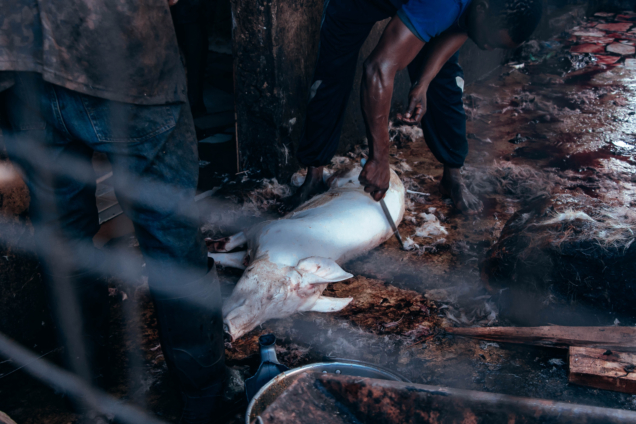A Ghanaian food processing company, Akwaaba Feeds Limited, has been accused of seizing control of a public enterprise with which it partnered in a public-private partnership initiative funded by the European Union.
In early September 2022, the Weija-Gbawe Municipal Assembly launched a million-euro piggery project to much fanfare and expectation of a “transformative initiative” to uplift lives, create jobs, and boost local economies.
In pursuit of these goals, the assembly immediately engaged the services of Akwaaba Feeds to manage the facility and create a thriving piggery value chain.
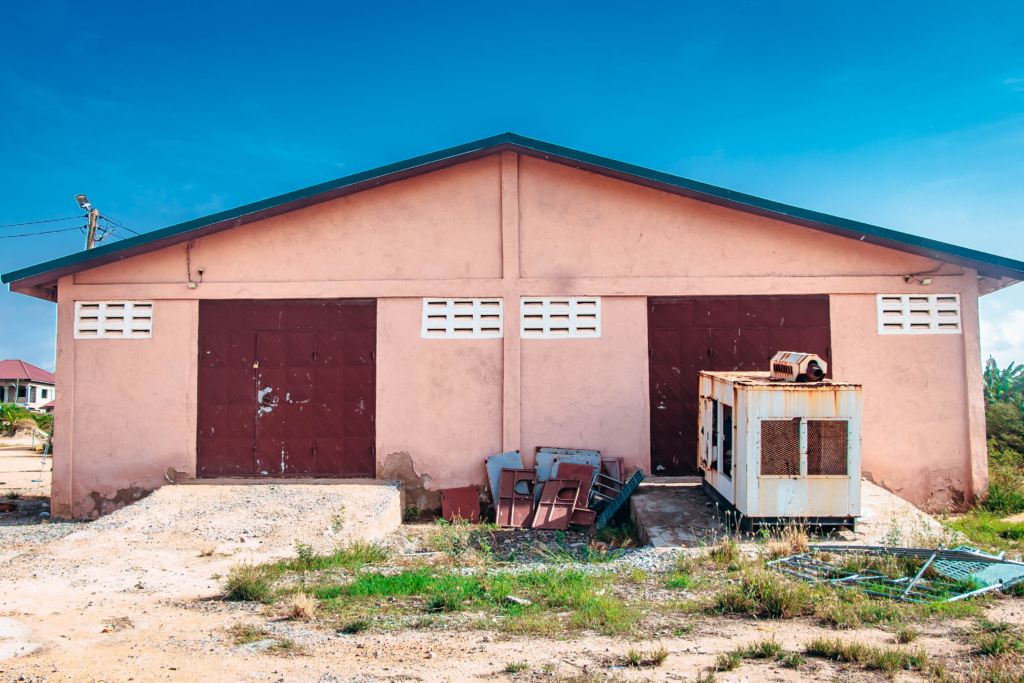
It was a big mistake.
Investigations by The Fourth Estate have unearthed a trail of corporate overreach, mismanagement, and bad corporate governance that appears to continue unchecked.
Akwaaba Feeds has turned out to be totally uncooperative, refusing to remit any revenue to the Assembly, according to two sources close to the developments and privy to the contract terms and conditions.
The sources say key financial and operational control – including the abattoir’s bank accounts, budgets, and board membership – rests solely with Akwaaba Feeds.
This suggests that every penny from services, like pig slaughtering, carcass preparation, the sale of pork, and holding pen rentals, goes directly into the company’s coffers. Receipts issued to customers bear the company’s name instead of the Weija-Gbawe Municipal Assembly, violating the government’s Public Financial Management (PFM) Act.
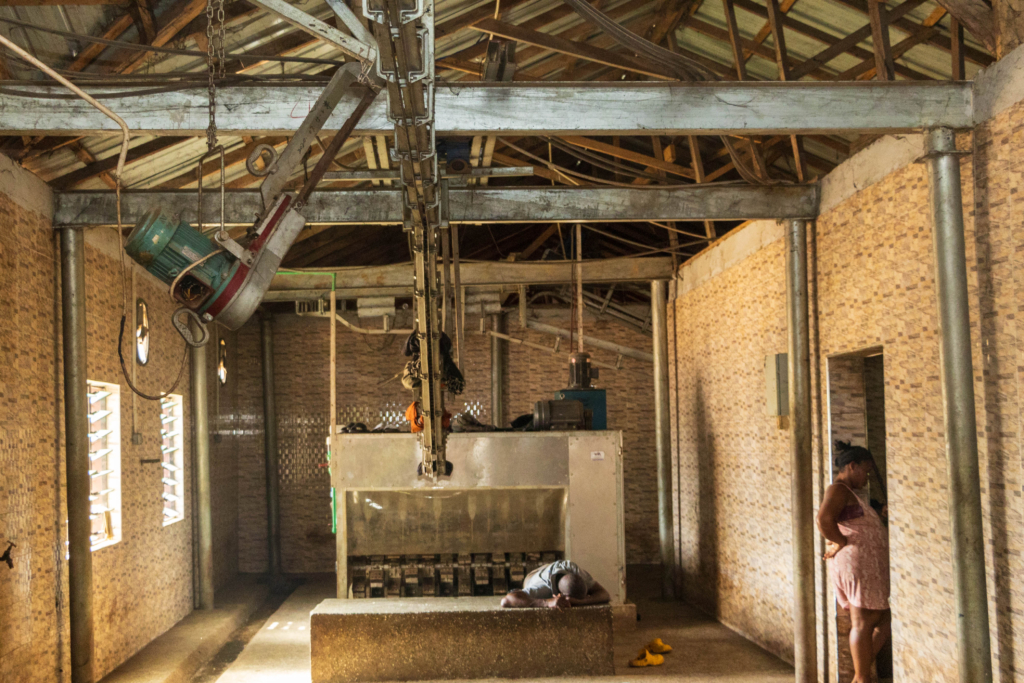
Akwaaba Feeds denied any wrongdoing when contacted by The Fourth Estate.
“This isn’t collaboration; it’s seizure,” a source familiar with the project declared. “The entire project has been hijacked.”
Vision derailed
The Gbawe Pig Abattoir project was more than just a facility – it was a dream.
Funded under the EU’s Local Economic Development (LED) initiative, the abattoir was designed to support pig farmers, provide hygienic pork products, and create opportunities for over 350 youths, including those with disabilities.
It promised a 130% boost in municipal revenue and brighter futures for countless families. By September 2022, the dream had become a nightmare.
Despite interventions by Municipal Assembly officials, including a resolution in March 2024 led by the Municipal Chief Executive, Michael Danquah, and Coordinating Director, Vida Awuku, the Assembly has been unable to regain control.
According to two sources familiar with the proceedings, meetings with Akwaaba Feeds often devolve into heated arguments, with the company’s representatives openly challenging Assembly officials.
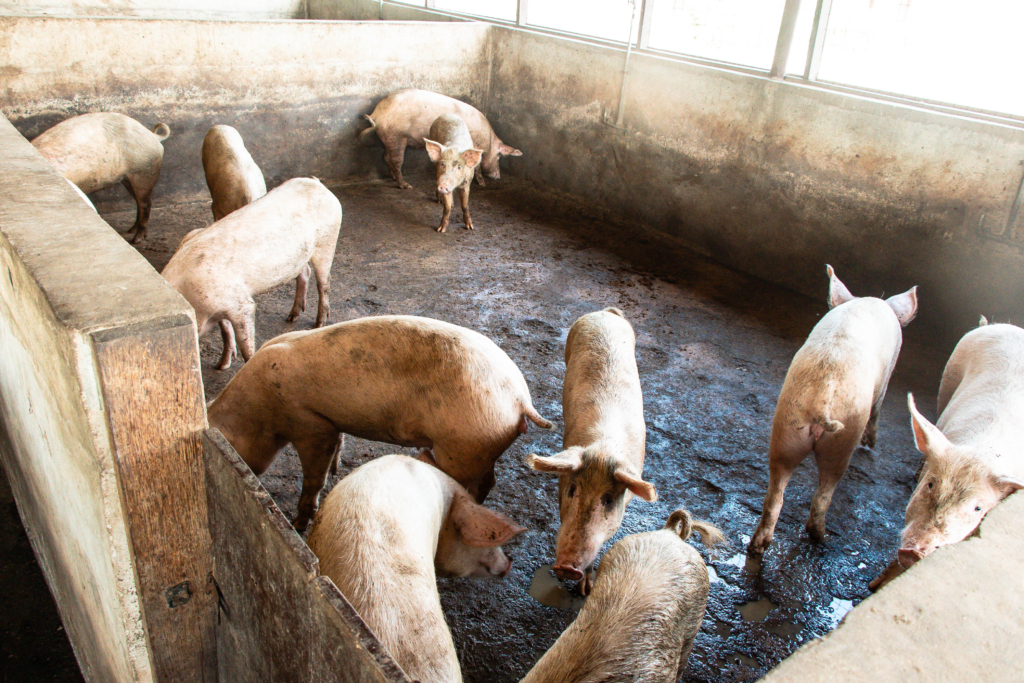
In a bid to reclaim some oversight and clip Akwaaba’s wings, the Assembly stationed staff at the abattoir in early 2024.
Within three months, these officers managed to collect GH₵40,000 in revenue – an amount that suggests the Assembly could have generated GH₵350,000 over the 35 months of Akwaaba’s management. This figure represents 10% of the Assembly’s internally generated funds in 2023, a substantial loss for a resource-strapped municipality.
Efforts by the Assembly to continue monitoring revenue at the abattoir were, however, met with hostility… and the Assembly inexplicably withdrew its staff, one of The Fourth Estate’s sources said.
“I don’t know how they manufactured the contract but the people (Akwaaba Feeds) have some power that the manager could talk to our Coordinating Director anyhow,” the source said angrily.
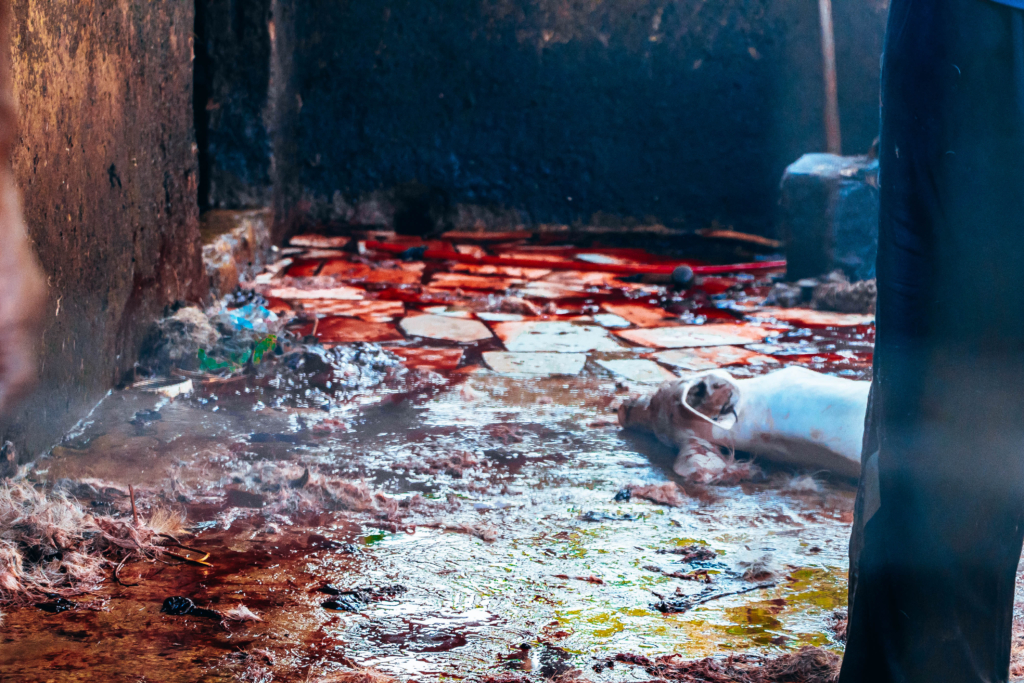
The Fourth Estate’s sources declined to be named over fears of being victimised, and because they were not authorised to speak to the media.
The price of failure
The EU-funded project was meant to include a modern abattoir, a breeding centre, and a feed mill. The project was also envisaged to improve the Assembly’s annual domestic revenue mobilisation by at least 200 per cent.
It also aimed to create job opportunities for pig farmers and the youth, including persons with disability running small and medium-scale enterprises. By 2022, these facilities should have been operational, uplifting farmers and promoting hygienic pork production. However, key components like the breeding centre and feed mill remain idle, their potential unrealised.
“It is quite unfortunate that the purpose has been defeated,” the source said. “The breeding centre didn’t work, the feed mill too didn’t work.”
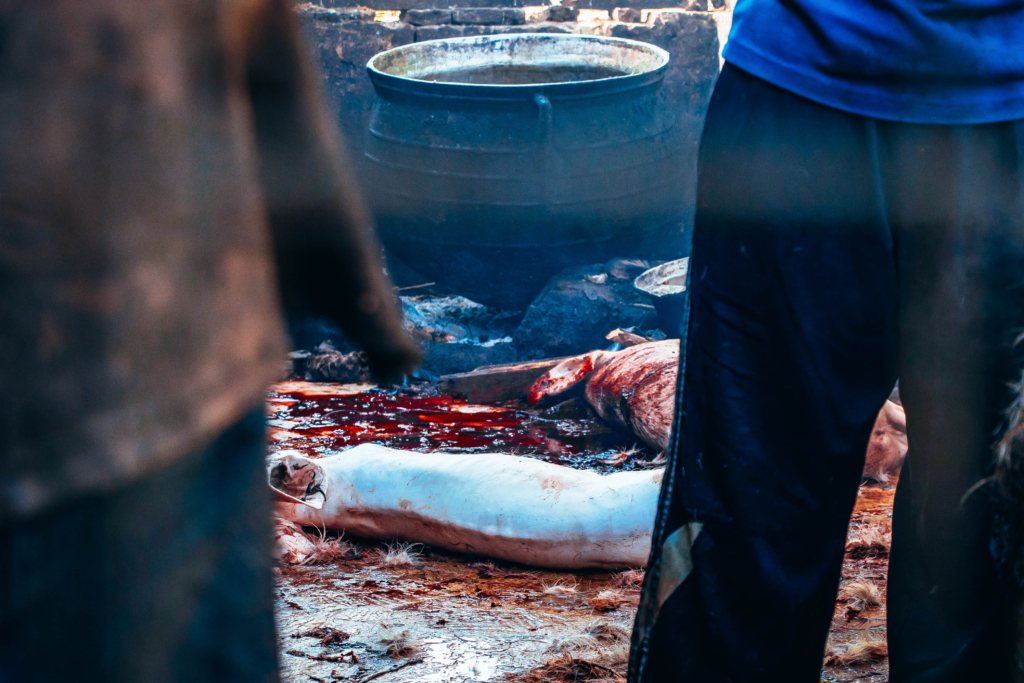
Akwaaba Feeds, meanwhile, has failed to fulfil its end of the bargain. Instead of over GH₵600,000 capital investments as required in the contract, the company reportedly erected a single structure valued at GH₵20,000.
“This isn’t just about money,” the Assembly’s source shared. “The whole purpose of the project – to create jobs, empower farmers, and promote public health – has been defeated.”
The Assembly’s 2022 annual report revealed that it cost GH₵722,689.85 to construct the abattoir, which includes holding pens, offices, a processing room, and storage facilities.
Adding to the financial woes, the Assembly has also struggled to meet its revenue targets. Internal audit reports from early 2022 show a revenue shortfall of nearly GH₵49,000 compared to the same period in 2021. The auditors attribute this to challenges with billing, data management, and uncollected fees.
“…this underperformance was due to the problems with printing of bills and data management on the IRMS (Integrated Revenue Management System), revenue collections on billboards, signage and temporal structures which are yet to be collected as at the end of 1st Quarter, 2022,” the audit report noted.
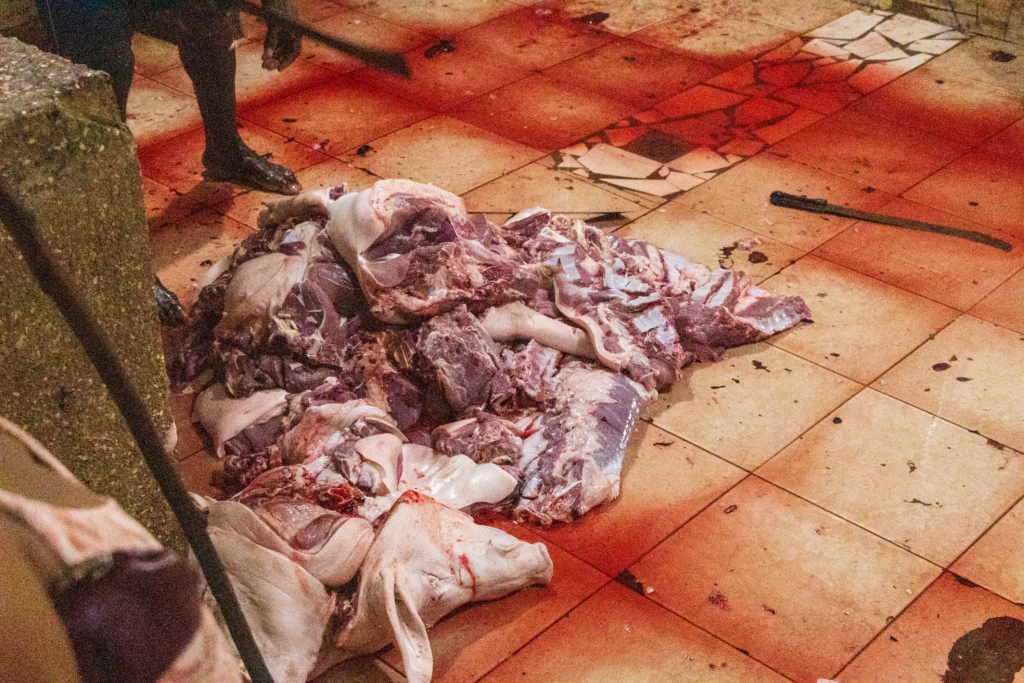
The absence of an effective and a binding contract prompted the Assembly to renegotiate the contract. “Managements of the Weija/Gbawe Municipal Assembly and the Gbawe Pig Abattoir refer the contract to their respective legal advisors to review and recommend the way forward,” a March 2024 directive said.
What was intended as a partnership has turned into a monopoly. The collaboration between the EU, the Assembly, and Akwaaba Feeds has not only failed but has left the municipal assembly scrambling to salvage what’s left of its vision.
As it stands, this tale of mismanagement and broken promises serves as a stark reminder that transparency and accountability are as essential to public projects as the funding that fuels them.
Project defects defeat scheme
Dr Osei Agyeman Bonsu, manager of the Gbawe Pig Abattoir, expressed concern over numerous shortcomings in the facility’s design and operations.
In an interview with The Fourth Estate, he explained that serious mistakes during the planning phase led to all the equipment inside the abattoir malfunctioning, rendering operations impossible. Dr Bonsu said excessive electricity consumption was a major issue due to old equipment, with continuous breakdowns, which led to unbearable and costly maintenance.
The abattoir lacked a cold storage room, essential for preserving meat in top quality and safe condition. Its absence compromised the business’s sustainability and hygiene standards, he added.
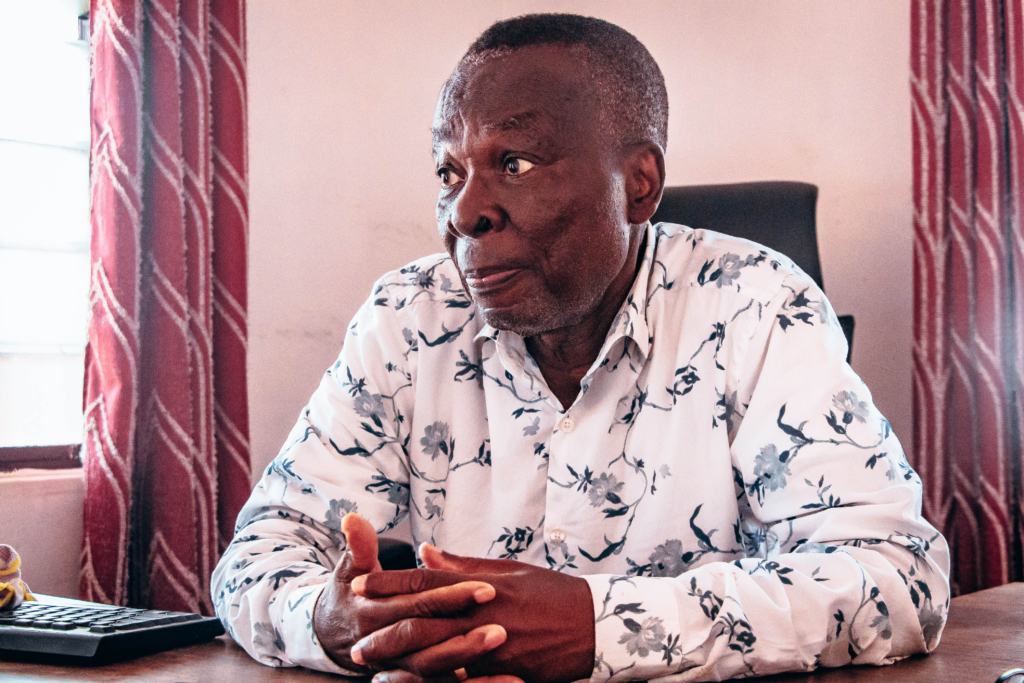
The electrical equipment within the plant was outdated and inefficient, contributing significantly to the high running costs, he said. Water heats within 20 minutes at more modern abattoirs, while their outdated system takes up to four hours, consuming more power.
The interview also shed light on the inhumane slaughter practices still prevalent at Gbawe Pig Abattoir. Despite having received an electric stunner in 2023 from the Netherlands-based animal-welfare organisation ‘Eyes on Animals’, the facility has yet to adopt this humane method.
Abattoir does not pay taxes
Financial records obtained by The Fourth Estate reveal that the facility reports an average monthly revenue of approximately GHS18,000, which indicates the slaughter of roughly 1,200 pigs each month. When asked whether the abattoir pays taxes, Dr Bonsu admitted that it does not, explaining that the monthly earnings are insufficient even to cover staff wages.
Dr Bonsu decried the fact that even as operational costs have risen sharply, the abattoir has maintained a service fee of GHS15 per pig – a stark contrast to what he sees as a more appropriate fee of GHS60, considering the expenses involved.
While lamenting the current poor state of the project, he said that with the right investor, the facility could be revitalised to create jobs in Weija-Gbawe. It would also transform the piggery value chain, which was initially envisioned to generate over 350 jobs and boost the local economy.
Unfortunately, the promise of the project has largely faltered. Many local farmers, who once sold their pigs to the abattoir, have since sold all their stock and reinvested their limited resources elsewhere. The community’s hopes for a thriving piggery industry, capable of promoting economic growth and employment, have been significantly undermined.
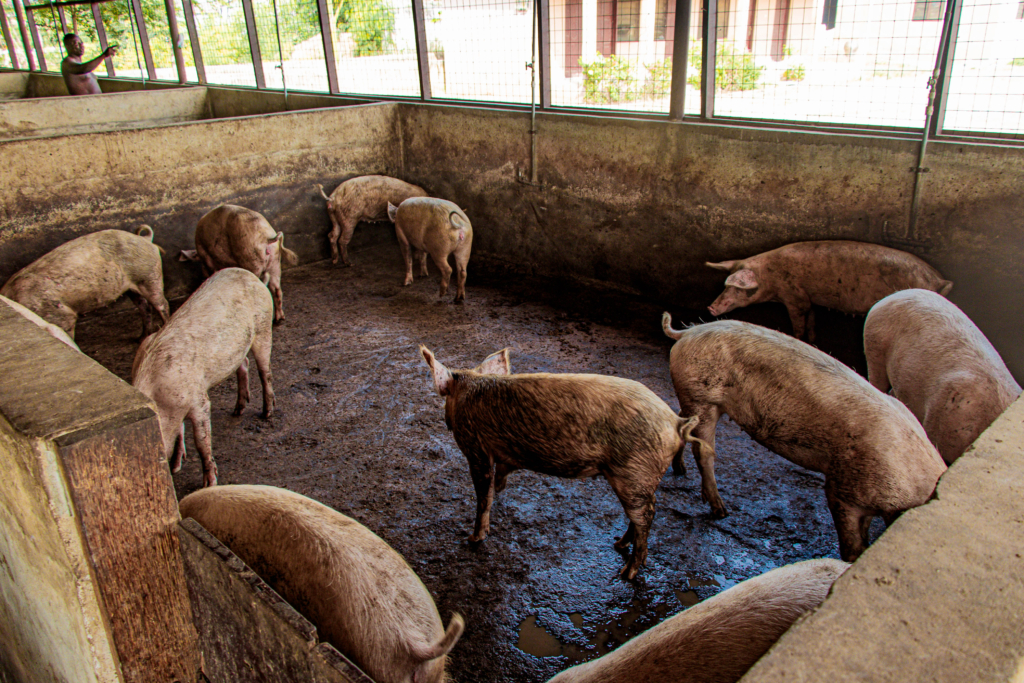
‘No comment’
When approached for comment, the European Union delegation to Ghana declined to specify details about the project’s evaluation, stating that assessments were ongoing and they could not provide further insights at this time.
“The European Union evaluates and monitors all funding projects to assess progress and build evidence for improvements. However, specific details about a concluded assessment on this project is still in progress and we are not able to comment further,” its press and information officer, Abdul-Kudus Husein, said in an email.
The Weija-Gbawe Municipal Assembly did not respond to multiple interview requests since November 2024, leaving questions about whether the community’s future piggery ambitions would be realised.
The Fourth Estate also requested the contract for the management of the abattoir from the Assembly and Akwaaba Feeds but both entities failed to provide it.
The project received support from the Thomson Reuters Foundation as part of its global work aimed at strengthening free, fair and informed societies. Any financial assistance or support provided to the journalist has no editorial influence.
The content of this article belongs solely to the author and is not endorsed by or associated with the Thomson Reuters Foundation, Thomson Reuters, Reuters, nor any other affiliates.
ALSO READ:

